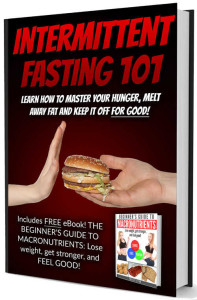From my many readings and experiments, I have come to various conclusions on how to best to achieve a goal. It’s never simple and you have to understand both sides of the coin. Hopefully this will help any newbies to health and nutrition.

First off, always question what everyone else is doing. I’m not saying the majority of people are “stupid.” More like “people are largely uneducated, lazy, and generally follow a sheep-like mindset,” rather than independent study.
This is how humanity works sometimes…
Instead, I just try to apply a simple scientific mindset to everything I hold dear. I always try to look at everything with a healthy dose of skepticism while knowing fully well that EVERYTHING has a ounce of truth to it, no matter how wild it may seem. The challenge is to see if it holds up to real world experimentation and repeatability. The problem is that when it comes to finding the truth, you have to look at as many sources as possible and try to find PATTERNS. There is no one source for the truth.
What is good and bad for you?
Patterns and experimentation are the only way to find the truth.
 It’s not the be all end all, but it’s good to experiment before you either blindly believe them or outright condemn them. The problem is, with almost every idea, there will be supporters and there will be opposers. Each side will have a nugget of truth. To further confuse things, they will try to convince people using various studies/arguments that appear to support their claim while poo-pooing anyone/anything that doesn’t agree. They’ll use specially constructed arguments that may use faulty logic (straw man is particularly useful) to try and bring people into a certain mindset. Again, I’m not attacking any group in particular, almost everyone is guilty of this at some point or another. What sets them apart?
It’s not the be all end all, but it’s good to experiment before you either blindly believe them or outright condemn them. The problem is, with almost every idea, there will be supporters and there will be opposers. Each side will have a nugget of truth. To further confuse things, they will try to convince people using various studies/arguments that appear to support their claim while poo-pooing anyone/anything that doesn’t agree. They’ll use specially constructed arguments that may use faulty logic (straw man is particularly useful) to try and bring people into a certain mindset. Again, I’m not attacking any group in particular, almost everyone is guilty of this at some point or another. What sets them apart?
Some don’t care about the truth, it’s more important that they THINK they are right!
It’s something you really have to watch out for. A decent logic is hard to come by. Especially on the world wide web, I’ve noticed. Go ahead, Google two side of any argument. One example is whether or not “is breakfast is good or bad for you?” Too generic? How about if “breakfasts determines fat-loss?”
You’ll find studies and articles that support both side of the claims. Problem is, not everyone is fat adapted well enough to skip breakfast and they become much more voracious and overeat as a result. Some people are able to go everyday without it and experience virtually no hunger. Will the study be able to tell the difference?
Having said that, breakfast is good…
…If you’re an athlete who needs tremendous energy to perform in a sport. Heavy laborers? For people who run on glucose metabolism and need a lot of energy for daily work, then yes, breakfast is a good idea. For almost everyone else?
I think it’s a waste of time and money, plus it keeps the fat locked away in our bodies. When insulin is constantly elevated, glucagon can’t help release the stored fat for energy. Excess insulin keeps people hungry and they never work off the energy. It’s that simple.
The corporations that profit off obese people stuffing their faces with “healthy breakfast food” would keep you convinced otherwise. Did you know the primary source of the “breakfast is good for you” b******t is none other than the man who greatly profited from it, Mr. Kellogg, himself?
So again, it’s not a “good or bad for you” argument. It’s goal specific, that’s how health works.
The problem is, most people think in terms of BINARY.
Good or bad for you. Positive or negative. The world does not work this way.
 Instead, I’ve found that for every situation, there is a SPECTRUM of possibility. It all depends on your goals. A classic example is that of Cortisol. The good old stress hormone. Most people think very negatively of Cortisol. Most people think of it as the thing that either makes the depression so devastating or the reason why they have so much trouble losing weight. Obviously bad for you?
Instead, I’ve found that for every situation, there is a SPECTRUM of possibility. It all depends on your goals. A classic example is that of Cortisol. The good old stress hormone. Most people think very negatively of Cortisol. Most people think of it as the thing that either makes the depression so devastating or the reason why they have so much trouble losing weight. Obviously bad for you?
Again, depends on your perspective.
Cortisol can be good for you! Yes! Despite what almost everyone says!
Cortisol, in SMALL DOSES, leads to enhanced perception and awareness, as well as enhanced spatial memories. In the case of people having had traumatic events, most of them say they can remember in great detail all the subtle nuances of the event. Even if they don’t want to. (I can attest to this.)
This can be seen as a negative thing, but think about it in the context of evolutionary psychology. Cortisol allowed for prehistoric humans to distinctly remember situations that almost got them killed and where it happened, so they can avoid it! The temporary enhanced perception and quicker energy metabolism also likely kept them alive. The enhanced memory allowed their brains remember it and to better deal with it in the future. Natural selection at work! There’s a good reason Cortisol exists! In addition:
- Maintains blood pressure
- Regulates the immune system
- Helps break down proteins, glucose and lipids.
- The morning peak in cortisol makes us get out of bed and get going.
- Blunted morning cortisol peak is associated with lethargy and depression.
- Cortisol is elevated during exercise, which helps mobilize fats, increase performance and experience euphoria after and during workouts.
-
Improves muscle and glucose metabolism, increases pain tolerance, diminishes fatigue and strengthens motivation.
As for the negative side of Cortisol, there are things that are generally seen as “bad for you.” Chronically elevated Cortisol levels (ie: excessive stress or depression) can lead to memory loss as well as the previously mentioned vivid memories of a tragic event. There’s also an aspect of making fat loss harder when chronic levels are detected. It is also well known that unremitting stress with prolonged elevation of Cortisol can damage neurons in the hippocampus. So it does indeed have downsides… but it’s not 100% bad for you!
So based on this, can we call Cortisol “good for you” or “bad for you”? Again, it’s situational. I’d say long term Cortisol is bad, short term is good (to a degree.) In modern times, we’re stuck with it either way. Until we get nanobots capable of going into our bodies and shutting off various mechanisms, we can’t do schyt about it…. But it helps if you understand it.
Don’t believe everything you hear. Educate yourself to gain perspective. Try something new and formulate your own opinions. I’ll try and help!
Your Friend,
-Yossif
https://upload.wikimedia.org/wikipedia/commons/b/bd/Fat_scarecrow.JPG
https://secure.flickr.com/photos/22964099@N05/2204059683




Speak Your Mind